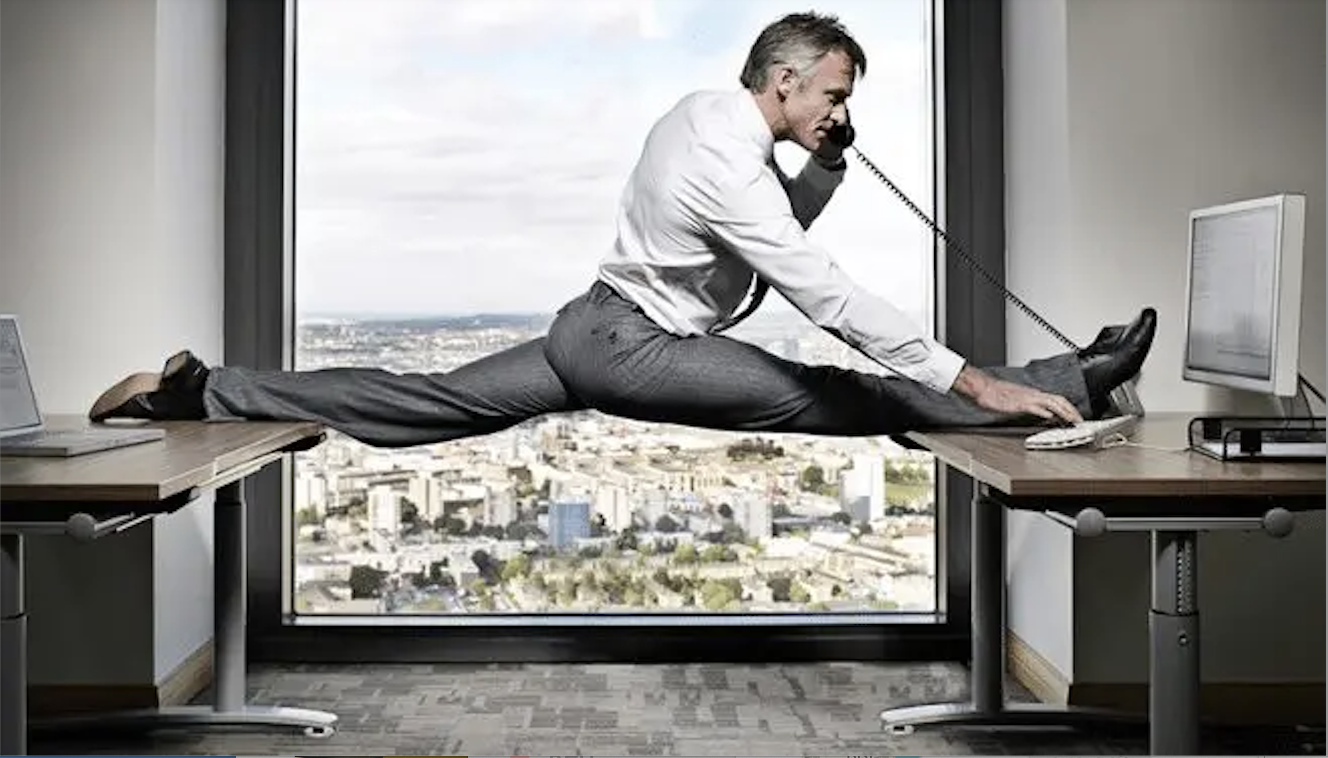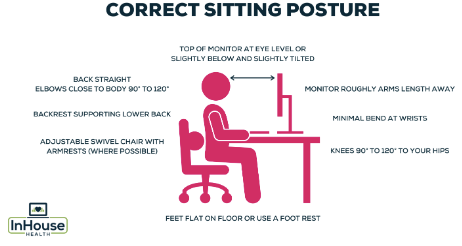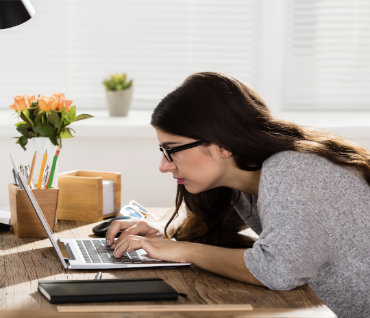
There’s no doubt that if you work in the digital tech sector you will spend a lot of your time at your desk and research shows that sitting at a desk for prolonged periods can significantly impact your health and wellbeing.
So, whether you work from a desk at home or in a commercial office, there are things you can do to make your work environment better.
Here are my 10 top tips! You might already be doing some of these and that’s great, if not then why not give them a go and see if they help improve your health and wellbeing.
1. GOOD LIGHTING
Sit near a window if possible. Getting natural daylight has shown to reduce stress levels and keep your circadian rhythm in check – keeping you alert. A desk light rather than an overhead light can also help reduce eye strain.
2. REDUCE EYE STRAIN
As well as improving your lighting, you can also reduce eye strain by following the 20-20-20 rule. Every 20 minutes, look at something 20 feet away for 20 seconds. You can also adjust the brightness and contrast of your screen to comfortable levels to improve eye care.
3. STAY HYDRATED
Keep a bottle of water at your desk and drink regularly. Hydration is crucial for maintaining good memory and concentration levels and for avoiding headaches.
A gradual fluid loss of just 1 or 2% can reduce those mentioned above as well as lower your mood. Staying hydrated and drinking water can also reduce tiredness and sluggishness and improve your productivity levels at work.

4. SIT LESS
If you are spending a long time at your desk, make sure you are getting up regularly to stand or walk around. Studies have shown that doing this is not only good for you physically, but it can increase productivity and mental focus. To avoid health risks that are increased by being sedentary, it is recommended that you stand up or walk around for at least 2 hours a day. Some suggestions to help you with this are;
4a. TRY A SITTING/STANDING ERGONOMIC DESK
If you can afford it or if your workplace agrees, switching to a sitting/standing desk can help you with moving more during the day.
4b. DO SOME MINI WORKOUTS
Some simple stretches and strength moves little and often add up over the day. Keep some resistance bands or wrist/ankle weights on your desk to remind you to take an exercise break! Swap your chair for 10 mins exercise a few times a day. No equipment, no problem – use your office furniture for exercises such as tricep dips and bus stops (remember to check that your chair doesn’t have wheels on it)!
4c. USE THE POMODORO TECHNIQUE
Not just good for productivity if you benefit from focussing on one thing in short bursts of time, you can use the breaks in the Pomodoro Technique to stand, stretch, hydrate yourself and rest your eyes from the screen (if you’re not scrolling on social media)!
5. SET UP YOUR DESK CORRECTLY
When sitting, ensure your hips are as far back as they can go in the chair and adjust the seat height, so your feet are flat on the floor and your knees are the same level or slightly lower than your hips. The top of the display screen should be around eye level (seated) and your arms should be bent at 90 degrees to reach the keyboard. This should help avoid lower back, neck and arm pain.
It is a legal requirement in the UK for employers to ensure that employees have had a DSE (display screen equipment) Workstation Assessment. https://www.hse.gov.uk/msd/dse/assessment.htm

6. BREATHE CLEAN AIR
Some office environments can trigger allergies. This can be caused by cleaning chemicals, poor ventilation and dust. Even if you don’t have symptoms, low quality air can lower your concentration levels. It may be out of your control in an office but if you work from home you can hoover regularly, open a window or get an air purifier. Some plants may even improve the air quality in your office, whilst also inspiring creativity and a feeling of wellness.
7. DON’T EAT AT YOUR DESK
Eating lunch away from your desk won't just keep crumbs out of your keyboard, it can help you reset for an afternoon of productivity. Chat with others, go for a walk – you deserve a proper break. Another benefit of not eating at your desk is that if you eat while you are distracted you are more likely to overeat, and we don’t want that do we!
8. NOTICE YOUR POSTURE
Posture is important to health and for workplace performance. Slouching makes you feel tired and lazy as well as contributing to back and neck pain. Sit up tall and feel that sense of accomplishment! Some of the tips above should help improve your posture.

9. SNACK HEALTHILY
If you are going to snack in between meals, choose healthy snacks such as fruits, nuts, or yogurt. Avoid too much caffeine or sugary snacks which can lead to energy slumps.
10. BRING YOUR PET ALONG
A bit divisive in office discussions and this one is not for everyone. Research shows that people who have their dogs (or cats at home) with them while working reduce their occupational stress and boost their work satisfaction. It’s also evidenced that other people that encounter pets in the workplace also feel less stressed too…unless they’re scared or allergic!
Well there you have it, some tips to get you thinking.
Did you know the average person will spend 90,000 hours at work over a lifetime? If most of your work involves using a computer, then you will be sitting down quite a lot! The Solution? MOVE. Take the stairs, stand up, sit down, stand up again, just get away from your desk as often as possible to benefit from a healthier working environment.
 Emma-Louise Fusari is a Nurse of 21 years and the founder of In-House Health a health tech startup that implements clinically led, evidence based and data-informed workplace health and wellbeing solutions for digital tech teams.
Emma-Louise Fusari is a Nurse of 21 years and the founder of In-House Health a health tech startup that implements clinically led, evidence based and data-informed workplace health and wellbeing solutions for digital tech teams.
www.inhousehealth.co.uk
linkedin.com/in/inhousehealth1








